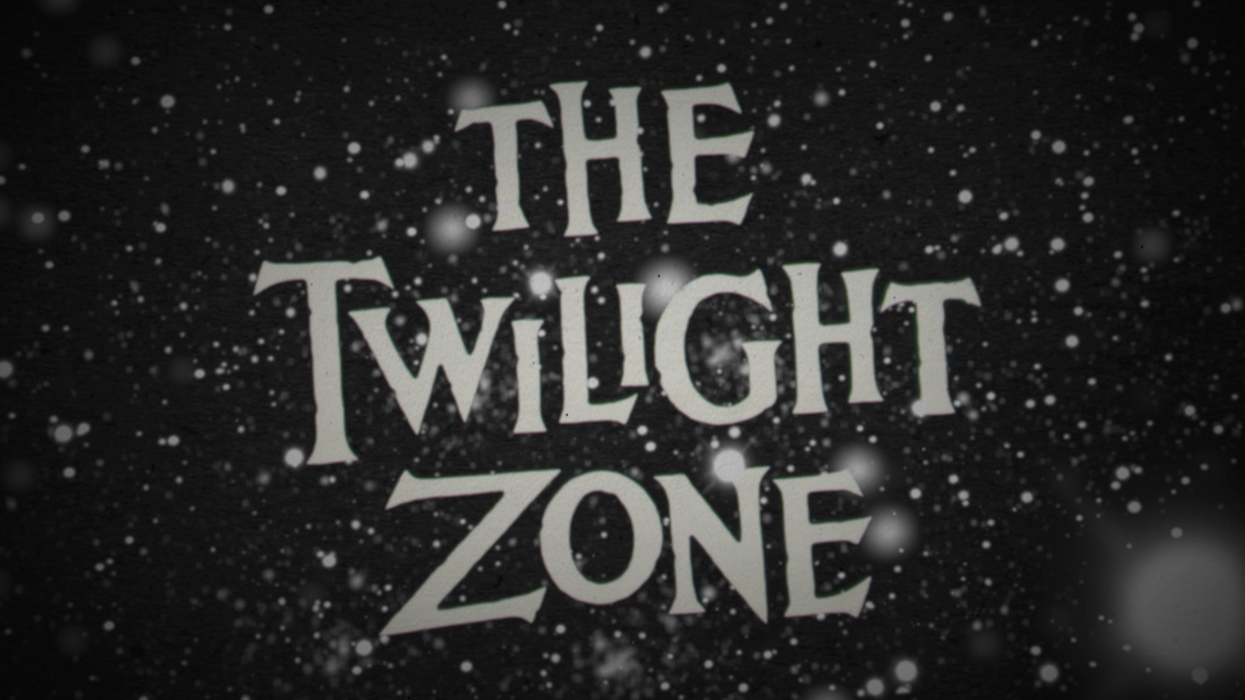Read and Download Some Original 'Twilight Zone' Script PDFs
Let Rod Serling's words take you into another dimension.

'The Twilight Zone'
In the annals of television history, few shows have left an indelible mark quite like The Twilight Zone. Created by the visionary Rod Serling, this series not only entertained but also provoked thought, pushing the boundaries of what television storytelling could achieve.
Its legacy is a testament to the power of narrative and its influence on both audiences and filmmakers alike.
I found some PDFs of some of the episodes and wanted to share them below.
The Twilight Zone ~ 1959 ~ Original Opening Title ~ UPA Animationwww.youtube.com
Read and Download Some Original Twilight Zone Script PDFs
I have a selection of three PDFs here, all for educational purposes only.
The Genius of 'The Twilight Zone' Scripts

'The Twilight Zone'
Credit: CBS
The Twilight Zone is a television series that has become synonymous with groundbreaking storytelling in the realm of science fiction and fantasy, and has a rich history that began in the late 1950s.
The show was the brainchild of Rod Serling, a television playwright already known for his thought-provoking and controversial works. Frustrated with the heavy censorship in television at the time, especially on topics of social commentary, Serling conceived it as a platform where he could explore these themes under the guise of science fiction and fantasy.
The original series ran for five seasons, from 1959 to 1964, but it has seen several revivals over the years. The first revival came in the 1980s, followed by another in the early 2000s, and most recently, in 2019, with a version produced by Jordan Peele.
The series has become part of the cultural lexicon, with the phrase "Twilight Zone" often used to describe surreal or bizarre situations. Its influence extends into various forms of media, including television, film, radio, and literature.
- Innovative Storytelling: The show was groundbreaking in its use of science fiction and fantasy to explore complex social and ethical issues. This approach allowed for creative freedom in storytelling, demonstrating the power of genre fiction to address serious topics.
- Strong Narratives: Each episode presented a self-contained story, often with a surprising twist. This structure emphasized the importance of a strong narrative arc and the impact of a well-crafted ending.
- Character Development: Despite the constraints of a short format, the show managed to develop deep and compelling characters. This teaches the importance of character development in driving the narrative and engaging the audience.
- Social Commentary: Many episodes served as allegories for contemporary social issues, such as racism, war, and government oppression. Filmmakers can learn how to weave social commentary into their stories subtly and effectively.
- Atmosphere and Tone: The show was masterful in creating a unique atmosphere and tone, often eerie and thought-provoking. This illustrates how the use of visual and auditory elements can enhance the storytelling.
- Economy of Storytelling: The concise format required efficient storytelling, teaching the importance of every scene, line, and shot in advancing the story.
- Exploring the Human Condition: At its core, "The Twilight Zone" explored the facets of the human experience, from fear and desire to morality and identity. This focus on universal human themes is key to creating resonant stories.
- Risk-Taking and Innovation: Finally, the show was unafraid to experiment with unconventional ideas and narrative techniques. This spirit of innovation is crucial for filmmakers looking to push the boundaries of their craft.
The Twilight Zone stands not just as a pinnacle of television excellence but as a masterclass in storytelling. For aspiring filmmakers, it is a source of endless inspiration and guidance.
The lessons drawn from its innovative approach to narrative, character development, and thematic exploration are as relevant today as they were when the show first aired. Rod Serling's masterpiece teaches us that at the heart of great filmmaking lies the ability to connect with the audience through stories that challenge, entertain, and provoke thought.
So check out the PDFs, lessons, and, most importantly, go get reading and writing.
- A Genre Examination of Psychological Horror Movies and TV Shows ›
- WGA Names 'The Sopranos' the Best Written TV Show of All Time ›
- Meet the Man Who Created the Director's Cut ›











